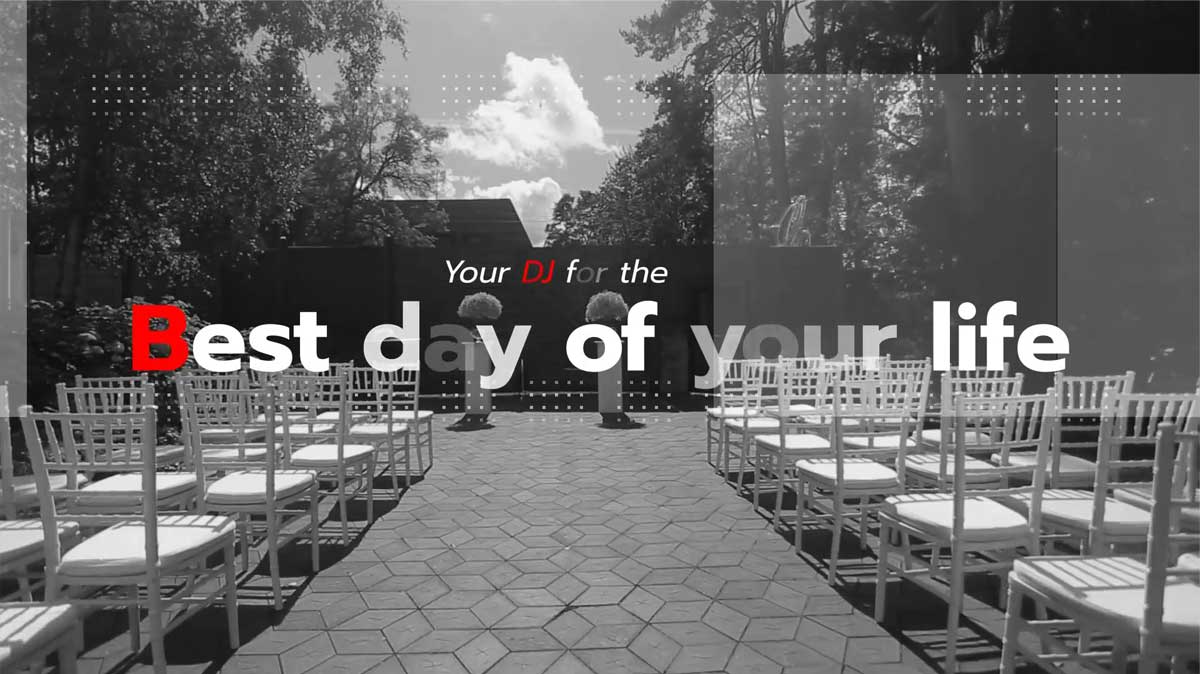
The Role of a Wedding DJ: Beyond the Music
The Role of a Wedding DJ: Beyond the Music

Introduction:
When it comes to planning a wedding, the right music can make all the difference. A skilled wedding DJ not only creates an atmosphere filled with great tunes but also plays a crucial role in ensuring that the entire event runs smoothly. In this blog, we’ll explore the multifaceted responsibilities of a wedding DJ, going beyond just playing music. From managing the timeline to coordinating with other vendors and engaging the crowd, let’s delve into the many hats a wedding DJ wears to create an unforgettable experience.
-
Master of Ceremonies:
A wedding DJ often takes on the role of a master of ceremonies (MC). They skillfully guide the flow of the event, making announcements, introducing speeches, and facilitating special moments such as the first dance or cake cutting. Their confident and charismatic presence helps keep the reception organized and ensures a seamless transition between different activities.
-
Timeline Management:
A wedding DJ is responsible for keeping track of the timeline and ensuring that everything runs according to plan. They work closely with the couple, wedding planner, and other vendors to create a detailed schedule, coordinating key moments like the grand entrance, toasts, and bouquet toss. Their ability to manage time effectively helps maintain a smooth and enjoyable experience for everyone.
-
Sound and Equipment:
Beyond their musical prowess, a wedding DJ is well-versed in sound systems and equipment. They bring professional-grade audio equipment, ensuring optimal sound quality throughout the venue. From setting up speakers and microphones for speeches to providing wireless audio options for outdoor ceremonies, they ensure that every word is heard clearly and every song is delivered with the right impact.
-
Collaboration with Vendors:
A successful wedding is a result of collaboration between various vendors, and the wedding DJ plays a crucial part in this. They communicate and coordinate with the venue staff, photographers, videographers, and other professionals to synchronize their efforts. This collaboration ensures that everyone is on the same page, maximizing the overall experience for the couple and their guests.
-
Music Curation and Adaptation:
While music is the heart of a DJ’s role, it goes beyond just playing songs. A skilled wedding DJ understands the diverse preferences of the guests and tailors the playlist accordingly. They read the crowd, adapt to the atmosphere, and seamlessly transition between different genres and tempos to keep the dance floor buzzing. Their ability to mix and blend songs ensures a continuous flow of energy and keeps the party going strong.
-
Crowd Engagement:
A great wedding DJ knows how to connect with the crowd and create an inclusive and engaging experience. They interact with guests, encourage participation, and create memorable moments on the dance floor. Whether it’s leading line dances, organizing interactive games, or taking song requests, their ability to read the room and engage the crowd adds an extra level of excitement and fun to the reception.
-
Backup Plans and Troubleshooting:
Weddings can have unexpected surprises, such as technical glitches or changes in the schedule. A professional wedding DJ is always prepared with backup plans and quick troubleshooting skills. They come equipped with backup equipment and have the expertise to handle any unforeseen challenges, ensuring a seamless experience without interruptions.
Conclusion:
A wedding DJ’s role extends far beyond simply playing music. They are the masters of ceremonies, timeline managers, collaborators with vendors, crowd engagers, and problem solvers. Their expertise and attention to detail contribute significantly to the success of a wedding reception. So, when you’re planning your special day, remember to choose a wedding DJ who understands the multifaceted responsibilities of their role and can create an unforgettable experience that goes beyond the music.



